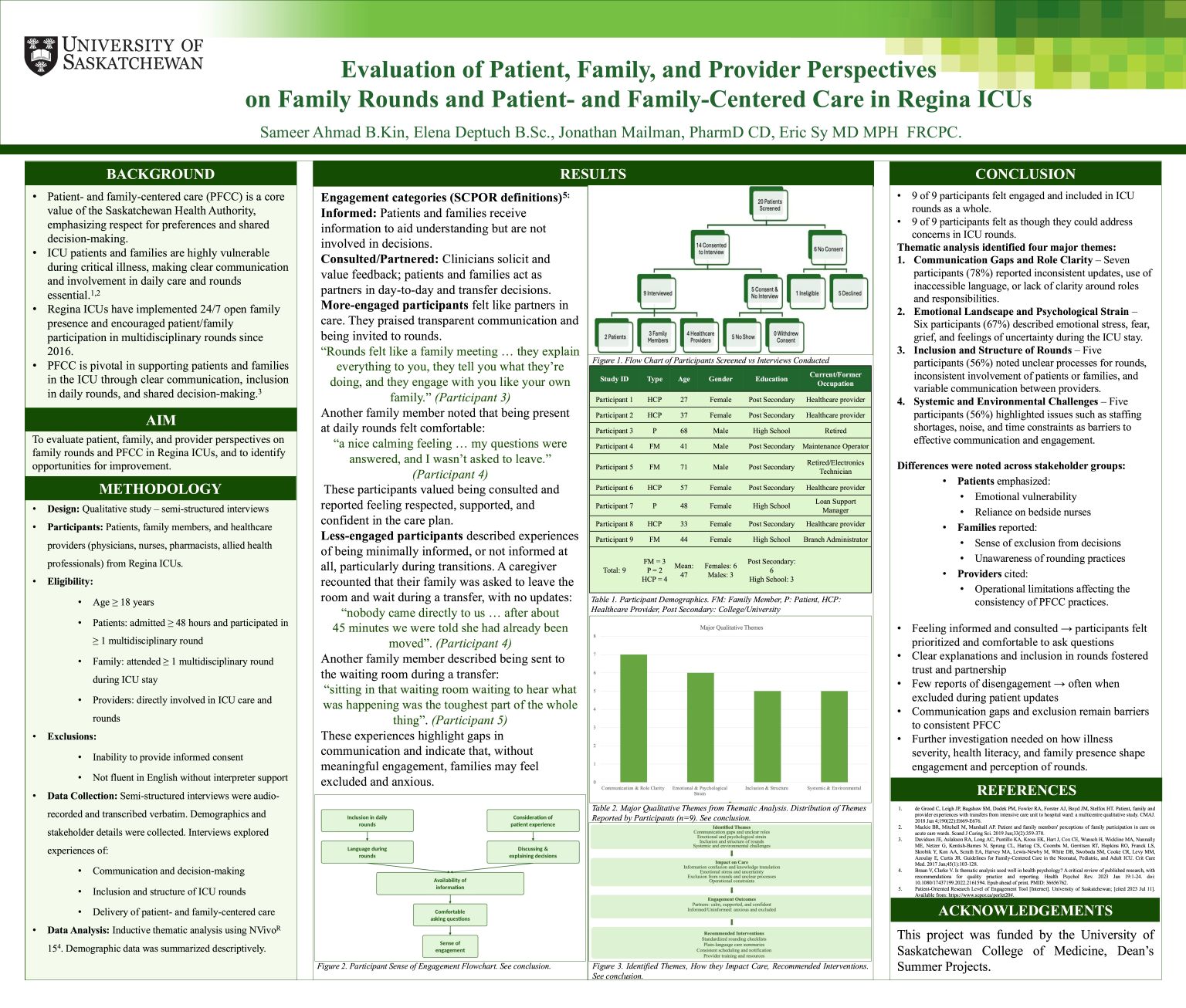
Evaluation of Patient, Family, and Provider Perspectives on Family Rounds and Patient- and Family-Centered Care in Regina ICUs
Sameer Ahmad
Background: Patient- and family-centered care (PFCC) is a core value of the Saskatchewan Health Authority. Regina ICUs adopted open family presence and encouraged family participation in multidisciplinary rounds in 2016, yet surveys show many patients and families still feel uninvolved. Understanding local experiences is essential to strengthen PFCC.
Methods: A qualitative study was conducted in the Regina General and Pasqua ICUs (June–July 2025). Semi-structured interviews were completed with patients admitted ≥48 hours, family members who attended ≥1 round, and providers directly involved in ICU care. Interviews were recorded, transcribed, and analyzed using inductive thematic analysis (NVivo 15).
Results: Nine participants (2 patients, 3 family, 4 providers; median age 44) were interviewed. Four themes were identified: communication gaps and unclear roles (7/9, 78%); emotional and psychological strain (6/9, 67%); inconsistent inclusion and structure of rounds (5/9, 56%); and systemic/environmental challenges (5/9, 56%). Patients described vulnerability and reliance on nurses, families reported exclusion, and providers cited operational constraints.
Conclusion: Clear explanations and inclusion in rounds fostered trust and partnership, yet communication gaps and exclusion limited decision-making. Standardized checklists, plain-language summaries, and structured notifications could improve transparency. Patient navigators or family liaisons may prepare families for rounds, while explicit prompts for input during care planning could advance shared decision-making in the ICU.
